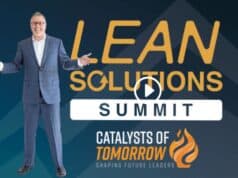There's a new TED conference video from April 2012 featuring Dr. Atul Gawande, author of amazing books including The Checklist Manifesto: How to Get Things Right.” The core of the video will be familiar if you remember my blog post on Gawande's 2011 commencement address: Dr. Gawande's Commencement Address: Cowboys or Pit Crews? It's well worth watching him deliver the message personally in this 20-minute video.
Some of my notes:
70 years ago(pre-penicillin), MDs tried to find diseases that they COULD treat, that they DID have treatments for (there were many conditions for which they could do nothing).
The core of medicine was formed in this simpler time when you could know all that there was to know, you “really could do it all.” Life as a craftsman – the culture and set of values were about being daring, courageous, independent, and self sufficient. Autonomy was our highest value.
We are now in a completely different world. We have treatments for virtually all conditions a person might not have (but not necessarily cures). What does it take?
“We can't know it all. We can't do it all by ourselves.”
Holding on to that old culture “has been a disaster.”
“We need pit crews, not cowboys.”
Looking at the high costs of healthcare, some might be making excuses of this is how is just is? But we're ignoring certain facts about what we can do to improve quality and results. We have to look at systems, not just the best collection of parts and components.
Gawande outlines the top skills required for successful systems:
- The ability to recognize success and failure (data, “as unsexy as that sounds”)
- Devise solutions (not just relying on more training and greater specialization) – “checklists are tools to make experts better.”
- The ability to get colleagues to actually do these things (it's been slow to spread)
My question – how do we get the public to DEMAND these methods that can reduce surgical harm and errors? Gawande says surgeons are resistant… when will they start putting the patient above their sense of autonomy? When we demand it? When hospitals and surgical societies demand it?
Please scroll down (or click) to post a comment. Connect with me on LinkedIn.
Let’s build a culture of continuous improvement and psychological safety—together. If you're a leader aiming for lasting change (not just more projects), I help organizations:
- Engage people at all levels in sustainable improvement
- Shift from fear of mistakes to learning from them
- Apply Lean thinking in practical, people-centered ways
Interested in coaching or a keynote talk? Let’s talk.
Join me for a Lean Healthcare Accelerator Trip to Japan! Learn More










Great video Mark – thanks for posting it. I think one of the key things to make this change happen is to go from a hierarchy to a team based environment. Pit crews are the epitome of teams. As a patient I’d like to meet the entire team not just one of the team members.
To be successful, teams need a common purpose and a measure of progress towards that goal. Perhaps greater transparancy of team results would be a good start.
You’re right that to make it happen in a particular hospital requires that team approach… which requires leadership and humility from the surgeons, anesthesiologists, and administrators.
But how do we get organizations to WANT to make this change? I’m curious if I went and surveyed the 50+ hospitals in the DFW area, how many are REALLY using checklists in a non-superficial way? How many are really looking to change this culture? Gawande says surgeons are “resistant.” Why is that? How do we change that? Is it lack of awareness or lack of courage to change?
And also – how do we get the media and public demanding this improvement? The public gets all worked up and demands change regarding BPA, trans fats, so called “pink slime” (which doesn’t harm anybody, just sounds gross), the use of dried red insects to color the strawberry drinks at Starbucks…
Surgical errors and medical errors are a WAY bigger issue in the pareto chart of things that can kill you… so where is the outrage and/or discussion about this?
My friend Marc, from Holland, wrote a blog post about this video on Sunday.
The link goes to the google translation of his Dutch blog:
LINK
Thanks for posting Mark – throughly enjoyed this!
In looking back over the years to the medical procedures & prescription drugs i was required to take, I can now see the mistakes I have made in trusting these practrictioners without proper research. I can now concluded that I served as a guinea pig for research without improving my health.
Trust is not a factor one can rely on, when we could be better served with a comprehensive educational system of prevention medicine & healthy living. It is now clear to me, that the medical profession is just another business, that exploits humans for money. Two of my doctors blew up, when I pursued questions that they did not have the answers too. One such question was “Why are foods and drugs controlled by the same entity, while doctors are not required to consider good nutrition as apart of knowledge & practice. Especially when many doctors are visibly unhealthy.
Case in point: The FDA does not require Monsanto to label its products containing genetic engineered foods. Why?
The only exception for a drug or pain killer, is when it is necessary to treat folks in cases of an accident that has an immediate death situation or to correct a current medical situation. Long term use of prescription drugs that are prescribed simply to relieve symptoms, do not heal nor have I found any written evidence that they do!
For what it’s worth, I’m completely in favor of GMO disclosure and labeling. We should have information about what’s in (or not in) our foods.
Comments are closed.